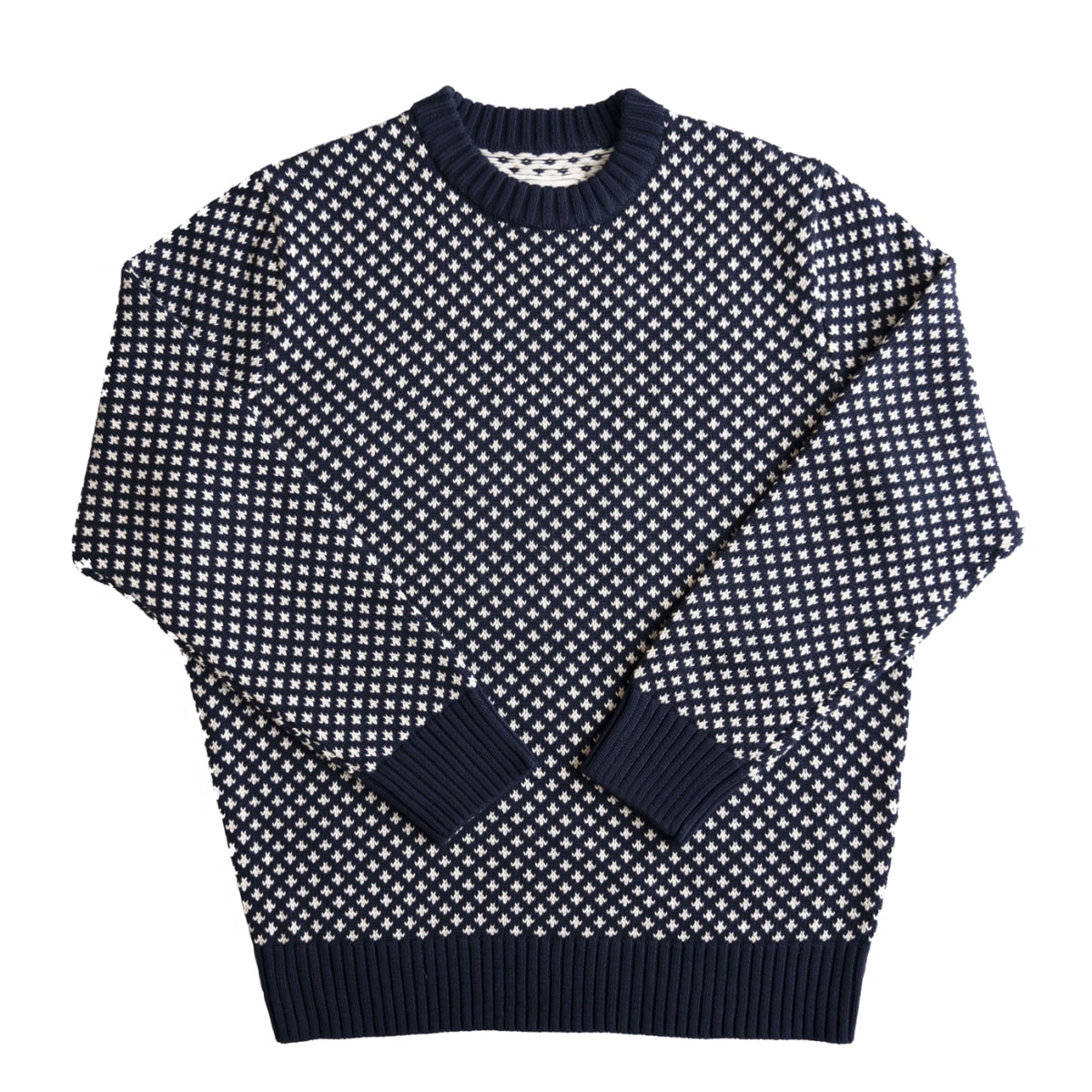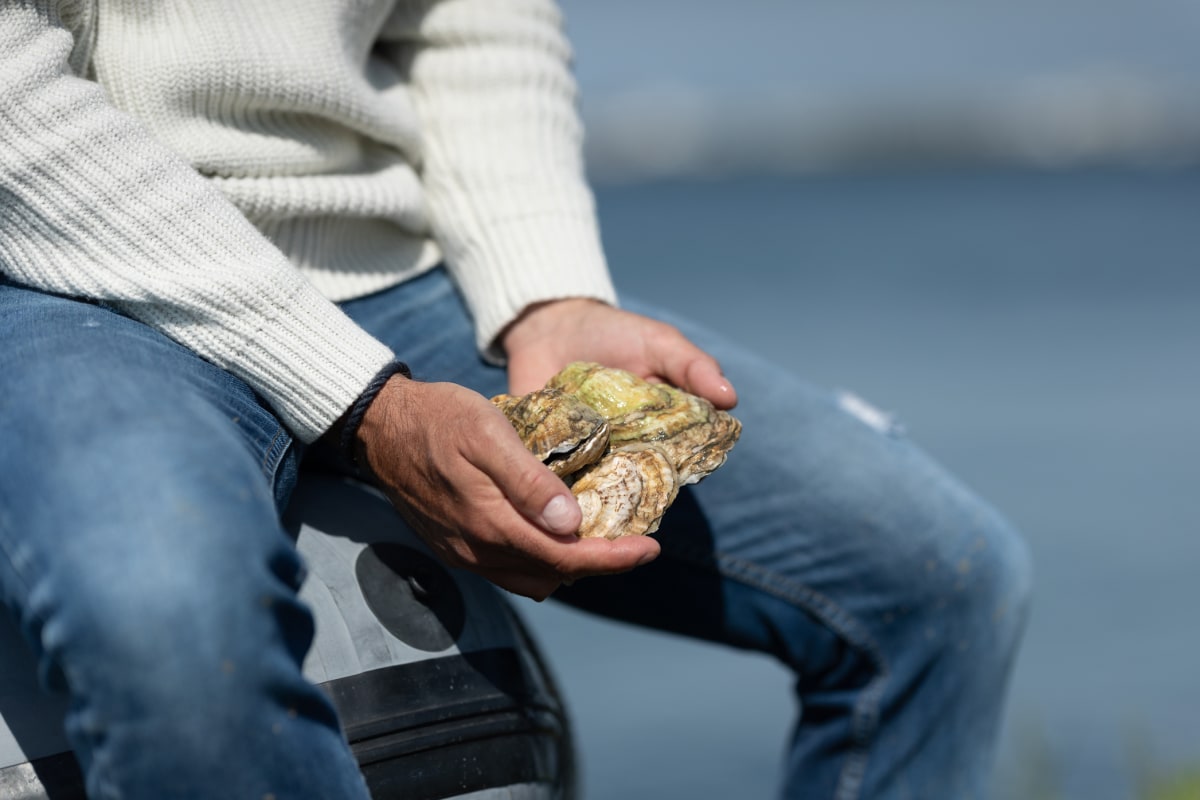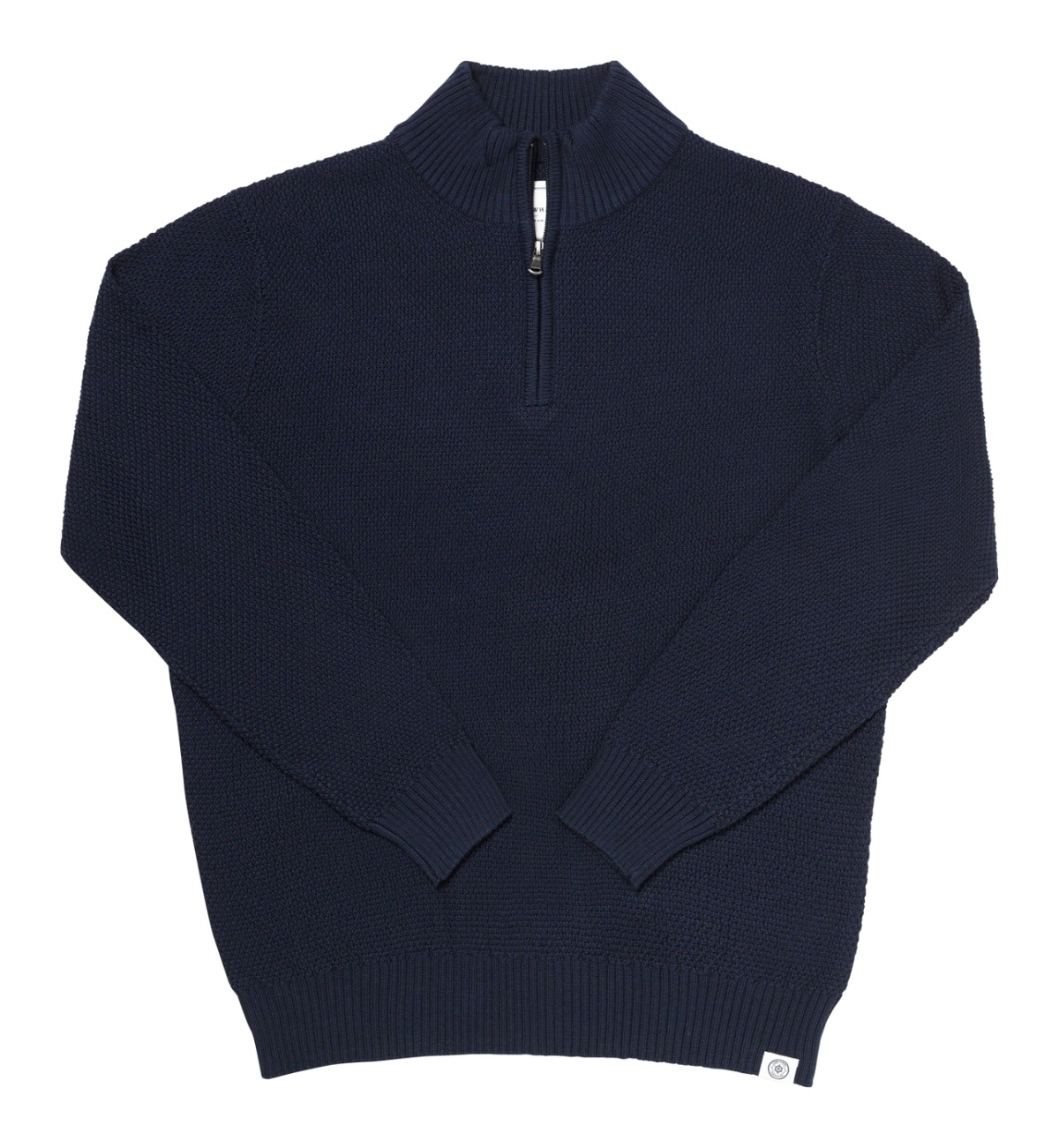[ad_1]
I discovered Long Wharf Supply Co., makers of maritime-inspired knitwear in coastal Massachusetts, on a digital dive using some of my favorite search query strings—New England, fall, sweaters. From there, it didn’t take long to learn that founder Mike Lamagna has a thing for oysters, using yarns spun from their shells to create his SeaWell collection of sweaters and tees.
The oyster-threaded knitwear is perfectly safe for people with shellfish allergies. “Although most folks are half-joking when they ask,” he says, “we always explain that the shells sit outside for almost a year to discard any enzymes or pathogens from the oysters before they are put into commercial use. And when they do get the sweater, they’re shocked by how soft it is.”

[Photo: courtesy Long Wharf Supply Co.]
Leveraging a patented nanotechnology, recycled oyster shells are processed to calcium carbonate powder and combined with pellets derived from recycled polyethylene terephthalate plastic (PET) water bottles. An extrusion process fuses together both recycled materials to create an rPET thread (recycled polyethylene terephthalate), enabling each garment to divert approximately five oyster shells, a waste of valuable biomaterial, and eight plastic water bottles from landfills, where about 60 million end up every day.
In the final stage, the rPET thread is spun with cotton or lambswool in different weights, depending on whether the finished garment is designed to be light and breathable or chunky and warm. Although Lamagna initially offered sweaters in a traditional ultra-warm lambswool as well as cotton, he has since converted most of the SeaWell line to his proprietary blend of 60% cotton and 40% rPET, developed to create a soft, breathable finished garment.

[Photo: courtesy Long Wharf Supply Co.]
Inspired by his father’s vintage fisherman’s sweater, made with thick ribbed cuffs and collar to protect against the windy sea, Lamagna named his company for Boston’s Long Wharf, once a major commercial entry point and home to trade mills, now on the National Register of Historic Places. His great grandfather worked on that wharf as a wool sorter, determining fiber quality according to length and fineness, a skill integral to the region’s legendary textile industry.
“Learning the role textile manufacturing played in New England through the eyes of our family over the course of my life determines everything from the quality of yarns we use to the color palettes we choose,” he says.
In 2023, Lamagna expects to approach $10M in sales through DTC as well as wholesale to a small group of independent retailers, up almost 500% year to date. But it hasn’t always been smooth sailing.
A finance major who previously worked in private equity focusing on startups, he launched his brand in 2016, using the last few thousand dollars in his bank account. At that time Lamagna was constantly trekking from NYC back home to New England, a period that inspired Long Wharf’s original assortment of Weekender bags and other travel accessories. Friends and family helped pay for the first inventory orders. A few years later, he realized the durability of his products created a business problem: built-to-last bags and wallets don’t need to be replaced often.

[Photo: courtesy Long Wharf Supply Co.]
Looking for a way to maximize his core customer group with an assortment they would purchase year after year, he created the first SeaWell knitwear collection in 2020, funding production with money from the accessory wholesale business. Then the world shut down, cancelling all sales orders. “In those times, you’ve just got to follow your gut, maintain your vision, and have a little faith that something will come through,” he says.
Not able to qualify for a PPP loan because the business was too small and didn’t technically have a traditional payroll, his next step was to activate his existing customer base and launch the knitwear as a preorder on Kickstarter. Ending its first 24 hours with $44,000 in pledges, the July/August campaign raised a total of $75,000, inventory investment for the 2020 holiday season. Those first SeaWell sweaters sold out, then generated $1 million in sales in 2021, reaching about $2 million in 2022, the second year of the SeaWell collection.
“It hasn’t been easy, but we’ve still not raised formal growth capital and are proud to be a bootstrapped, customer-funded, and profitable venture to this point,” Lamagna says. In 2021, he turned down a Shark Tank offer of $375,000 for 45% of his business, but still considers that exposure to be the company’s positive turning point: He learned to tell his story compellingly, sell online effectively, and identify target customers.
“We were taught to never leave the dock without an extra layer because when things change at sea, they change quickly,” he says. “That coastal utility is built into our sweaters, and as people reestablished their relationship with the outdoors during the Covid years, they were in a constant struggle to find something that works as good as it looks.”
Thread isn’t the only connection Lamagna has with oysters. He says he grew up “salty—a sandy, fish-loving beach baby,” and his lifelong relationship to the sea started when he was carried aboard a boat when only three days old, all the way through his time spent hauling traps as as a lobsterman—one of the oldest continually operated industries in America. As a result, he understands the precariousness of the marine ecosystem and aids in ocean restoration by funding the reseeding oyster beds with groups like the Massachusetts Oyster Project and Billion Oyster Project.
As filter feeders, oysters eat by pumping large volumes of water through their gills—about 50 gallons of sea water a day—removing algae, phytoplankton, and excess nitrogen, playing a significant role in safeguarding their regional waters. “They are the foundation of a strong inshore marine habitat, providing structure by which other small animals can live at an early stage of life, they help mitigate natural erosion caused by increased wave activity and rising sea levels,” he says.
Each SeaWell Sweater reseeds up to 30 oysters, naturally filtering up to 1,500 gallons of seawater every day. “To date, we’ve helped reseed over 900,000 oysters which naturally filter over 45million gallons of seawater every day,” Lamagna says. “And we’re imminently expecting to reach our 1 millionth oyster, helping filter 50 million gallons of seawater every day.
That’s a huge milestone for Long Wharf, and over time, those oysters begin to grow on each other, reproducing naturally to form a wild reef that will filter these inshore waterways and harbors for years to come.”
Francine Maroukian, a two-time James Beard Award winner, is a food and travel writer who also works as an operative researcher for C-suite executives in big retail.
[ad_2]
Source link

